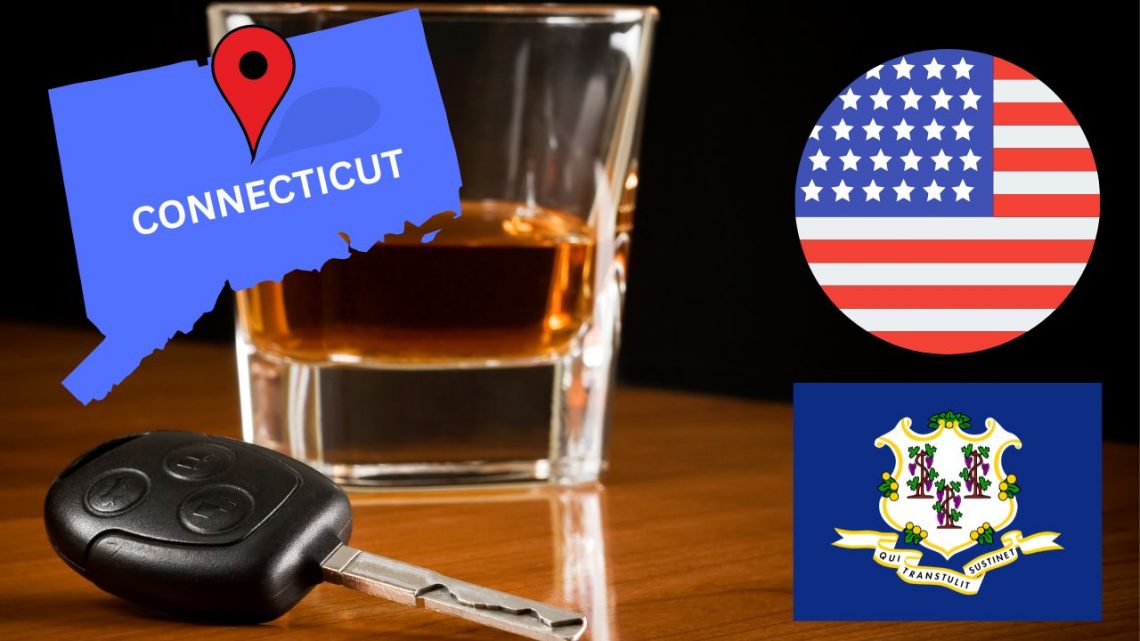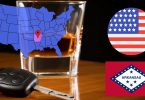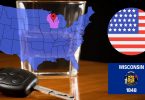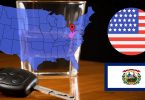In Connecticut, the maximum allowable blood alcohol concentration (BAC) for legal driving is set at 0.08%, which equates to 80 milligrams of alcohol in every 100 milliliters of blood.
Please be aware that this post aims to inform readers about Connecticut’s drunk driving laws. This page does not intend to encourage drunk driving in any location or state.
What is the Legal Alcohol Limit for Driving in Connecticut?
In Connecticut, the legal alcohol limit for driving varies based on the driver’s category. Different limits are set for regular drivers, commercial license holders, and minors to ensure safety on the roads. Here’s a breakdown of the blood alcohol concentration (BAC) limits for each category:
- Regular Drivers: The legal BAC limit is 0.08%. This means that for an average driver, having a BAC higher than 0.08% is considered illegal and can lead to a DUI charge.
- Commercial License Holders: For those holding a commercial driver’s license, the legal limit is lower at 0.04%. This stricter standard reflects the higher responsibility associated with operating commercial vehicles.
- Minors (Under 21): Connecticut enforces a zero-tolerance policy for underage drinking and driving. The legal BAC limit for minors is set at 0.02% or lower. Any detectable amount of alcohol in minors can result in serious legal consequences.
These limits are part of Connecticut’s efforts to reduce alcohol-related accidents and ensure the safety of all road users.
Drink and Drive Penalties and Punishments in Connecticut
In Connecticut, operating a motor vehicle while under the influence of alcohol and/or drugs constitutes a criminal offense. This is commonly referred to as Driving Under the Influence (DUI), Operating Under the Influence (OUI), or Driving While Intoxicated (DWI). This offense can be prosecuted regardless of the person’s Blood Alcohol Concentration (BAC), based on the impairment of their driving ability.
Connecticut’s Implied Consent Law
Driving is considered a privilege, not a right. As per Connecticut’s Implied Consent Law, any person operating a motor vehicle is deemed to have given consent for BAC testing.
Legal Intoxication Levels
- Adults (age 21 and over): Legally intoxicated at a BAC of 0.08 or above.
- Minors (under 21): Legally intoxicated at a BAC of 0.02 or higher.
Consequences of DUI, OUI, or DWI Arrest
- Detainment and reading of rights by the police.
- Vehicle towed at the owner’s expense.
- Transportation to the police station in a police cruiser.
- Detainment in police lock-up until bailed out, especially if BAC is 0.08 or higher.
License Suspension: Administrative Per Se
Upon being arrested and charged with DUI, the DMV may suspend your driver’s license for either failing or refusing a chemical alcohol test, as per Connecticut General Statute §14-227b. This suspension typically starts 30 days after the arrest and lasts for a mandatory 45 days. A notice will be mailed, and you have seven days to request a hearing with the Administrative Per Se Unit.
Ignition Interlock Device (IID) Requirements
For all alcohol-related suspensions, Connecticut requires the installation of an IID prior to license reinstatement. The duration of IID maintenance varies based on age, BAC level, and offense frequency.
DUI Conviction Penalties
Conviction in court for DUI can result in the following:
- First Conviction: 45-day license suspension, IID installation for one year post-restoration.
- Second Conviction: License suspension for 45 days or until twenty-first birthday, whichever is longer, with IID for three years post-restoration.
- Third/Subsequent Conviction: Permanent license revocation, with eligibility to request a hearing for reconsideration after two years.
Manslaughter/Assault with a Motor Vehicle
Convictions for manslaughter or assault with a motor vehicle under Connecticut General Statutes also carry severe penalties, including license suspension and IID requirements.
Note: Laws and penalties are subject to change. It is essential to regularly check the official state website for the most current information and legal references.
How Can I Calculate if My Alcohol Blood Limit is Legal in Connecticut
In Connecticut, the legal alcohol limit varies based on the driver’s category, and law enforcement officials typically determine a driver’s Blood Alcohol Concentration (BAC) through breath, blood, or urine tests. These tests are considered reliable indicators of impairment and are used to enforce DUI laws.
As an experienced phlebotomist with a decade in the field, I recommend two methods to estimate your BAC:
- Use a High-Quality Alcohol Breathalyzer: One of the most effective tools for estimating your BAC is a high-quality alcohol breathalyzer. From my professional experience, the BACtrack S80 stands out as a top choice in Connecticut. It offers Professional-Grade Accuracy and is DOT & NHTSA Approved, as well as FDA 510(k) Cleared. Keeping a breathalyzer like the BACtrack S80 in your vehicle can be a practical way to assess your BAC, helping you make informed decisions about your ability to drive safely. Remember, people often misjudge their level of impairment, and having a reliable device can be a crucial step in preventing DUI incidents.
- Utilize My BAC Calculator: Alongside other phlebotomists and web developers, I have developed an online BAC calculator. This tool is designed to give you an estimated BAC level based on the input you provide, such as the amount of alcohol consumed, over what period, and your body weight. It’s a useful resource for getting a general idea of your BAC before deciding to drive.
It’s important to note that while both these methods can provide you with a good estimate of your BAC, they are not 100% accurate. External factors such as metabolism, food intake, and individual health conditions can affect BAC levels. Therefore, these tools should be used as guides to assist in your decision-making process, rather than definitive measures of your legal ability to drive.
Always err on the side of caution. If there’s any doubt about your sobriety, it’s best to avoid driving. Remember, driving with a BAC over 0.08% in Connecticut is illegal and can result in serious legal consequences, not to mention the potential risk to your life and the lives of others on the road.
Ways to Avoid Driving with a High BAC in Connecticut
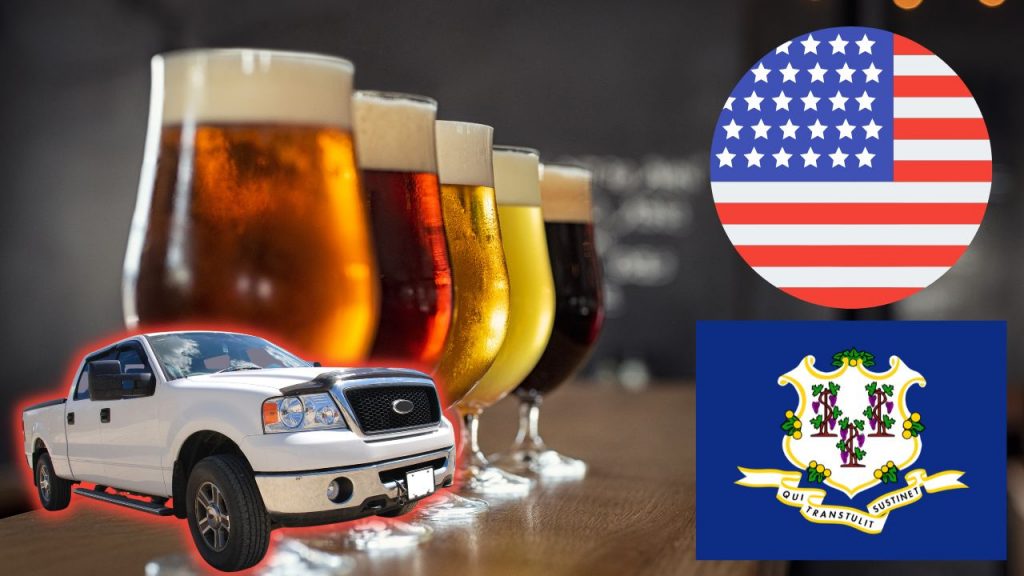
Driving with a high Blood Alcohol Concentration (BAC) not only puts you at risk of legal repercussions but also endangers your safety and that of others. Thankfully, there are convenient alternatives to driving under the influence in Connecticut:
- Use Taxi or Rideshare Apps: Opting for a taxi or rideshare service is a safe and responsible choice if you’ve been drinking. Services like Uber and Lyft are widely available and can be easily accessed through their respective apps. For local options, consider companies like Puebla Limó & Car Service in Bridgeport or A&S Taxi in New Haven. These services provide a reliable and hassle-free way to get home without risking a DUI.
- Order a Designated Driver Service: If you’ve driven to a location and then consumed alcohol, leaving your car behind might not be a preferred option. In such cases, consider using a designated driver service. Companies like My Personal Driver Transportation LLC in Bridgeport or Conor’s Driver Services in New Haven offer drivers who can drive you home in your own car. Simply search for “designated driver service” followed by your city’s name on Google to find a service near you.
Utilizing these services not only helps you avoid legal issues but also contributes to safer roads for everyone. Remember, it’s always better to plan ahead. If you anticipate drinking, arrange for a ride in advance or designate a sober driver. This small step can make a significant difference in ensuring your safety and the safety of others on the road.
Sticking to Impaired Driving Laws in Connecticut: Sad Statistics
In 2020, Connecticut experienced 295 traffic fatalities, with 40% involving drivers with a BAC of 0.08% or higher, and 26% at 0.15% or higher. Driving under the influence (DUI) is illegal in Connecticut and carries serious penalties. It’s crucial to adhere to the state’s legal BAC limits.
If you’ve been drinking and need to travel, opt for a taxi, a rideshare service like Uber, or a designated driver service. Using an alcohol breathalyzer can help determine your BAC level, but the safest option is not to drive after drinking.
Stay informed about Connecticut’s DUI laws by visiting the official state website. Remember, the safest approach is to avoid driving if you’ve consumed any alcohol, as impairment levels can vary significantly among individuals.

